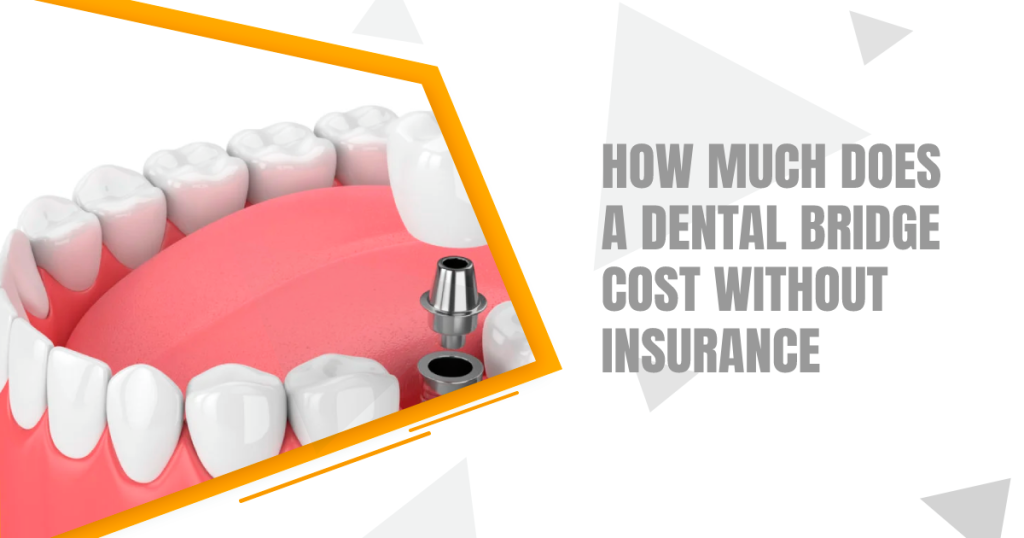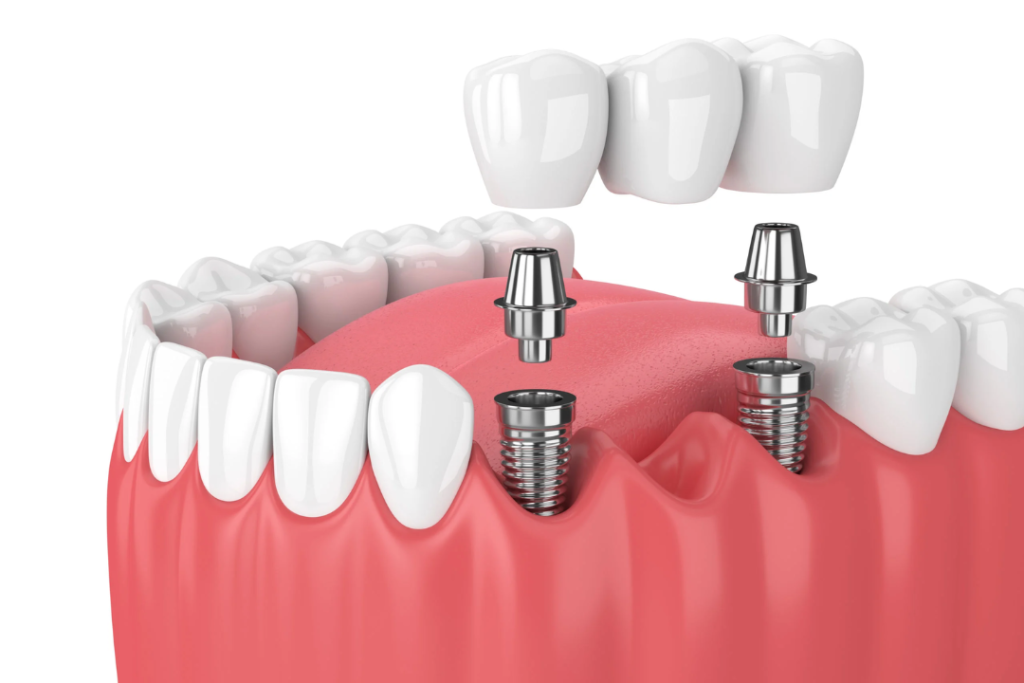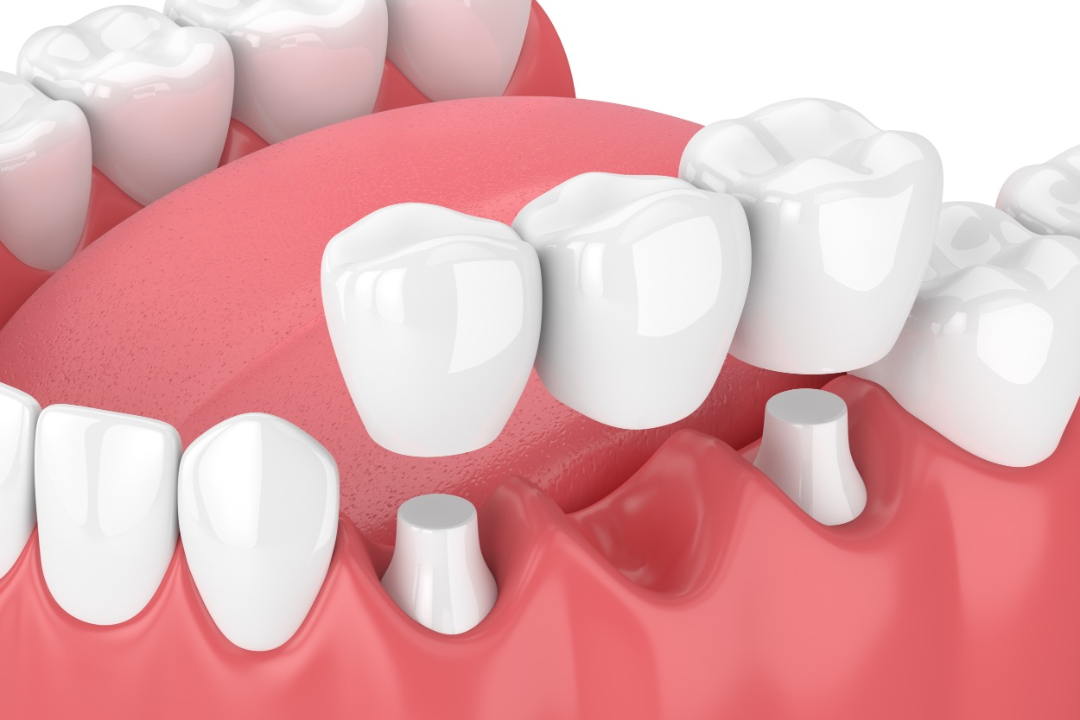
How much dental bridges cost is among the most often asked questions. In this blog post, we will how much does a dental bridge cost without insurance. Keep reading to learn more!
A dental bridge may be your best option if you are missing one or more teeth. A dental bridge can be used to restore lost teeth permanently. Bridges are often built of metal and porcelain, and with the right maintenance, they can last for many years.
How much does a dental bridge cost without insurance? Dental bridges typically cost between $1000 and $5000. On the other hand, these expenses will be decided based on a variety of variables, including the intricacy of the operation, the material utilized, and the number of teeth needed.
Contents
What Are Dental Bridges?
Dental bridges are a frequent and well-liked procedure for replacing lost teeth. Two crowns, often composed of metal or ceramic, are joined to a pontic, or prosthetic tooth, to form a dental bridge.
The pontic is held firmly in place by the dental crowns, which serve as anchors for it. Bridges may be permanently fixed in the mouth using special dental cement, or they can be removable, depending on your unique situation and treatment preferences.
The main advantage of dental bridges is that they restore the aesthetics and functionality of missing teeth, allowing you to enjoy all your favorite foods without worrying about embarrassment or discomfort.
Types Of Dental Bridges

Dental bridges come in a wide variety of forms, each with a unique combination of advantages and disadvantages and with varied costs.
Traditional Dental Bridge
The traditional dental bridge is perhaps the most common type of bridge, and it involves anchoring a false tooth to two bordering natural teeth. This provides a strong foundation for the bridge, but it can also be prone to issues if the surrounding natural teeth are not in good condition or become infected over time.
Cantilever Dental Bridge
Another type of bridge is the cantilever dental bridge, which connects false teeth to an anchor on only one side of the missing tooth instead of spanning across multiple surrounding teeth. While this can provide a secure foundation for the replacement tooth, it may not be suitable for larger gaps and can cause some discomfort as pressure is placed on only one side of your mouth.
Maryland Dental Bridge
The Maryland dental bridge is another option that uses artificial anchorings that are attached directly to your jawbone. Unlike traditional and cantilever bridges, this technique does not use any neighboring teeth as foundations; however, it can offer reliable stability over broader areas where there may not be sufficient support from surrounding natural teeth.
Implant-Supported Bridge
Finally, there is the implant-supported bridge, which uses one or more support posts made from titanium that is implanted into your jawbone in order to keep the false tooth properly aligned and prevent movement over time.
While this technique offers excellent stability due to its solid connection with bone tissue, it can also be relatively costly compared to other types of dental bridges.
Depending on your unique requirements and tastes, as well as any worries you may have about the expense or hazards involved with invasive procedures like implantation, will determine the type of dental bridge you ultimately select.
Regardless of which type you opt for, however, working with a skilled dentist will ensure that you receive effective treatment that restores both function and aesthetics for healthy and beautiful results!
How Much Does A Dental Bridge Cost Without Insurance?
Dental bridge prices can vary greatly based on a number of variables, including the materials utilized and the supplier you select.
- Number of teeth required
- Material of dental bridge and the type of bridge used
- Level of difficulty with the placement
- Where you are located
- Dental procedures involved (like teeth cleaning, gum disease, etc.)
- Insurance
How much does a dental bridge cost without insurance? On average, it is estimated that a dental bridge costs between $1,000 and $5,000 without insurance. Some providers may offer more affordable rates if you opt for more basic materials or if you purchase a comprehensive plan in addition to your bridge.
The downside to less-priced choices is that they could not be as strong or long-lasting. The easiest method to locate an affordable dental bridge that meets your needs is to shop around and compare costs from several suppliers.
Dental Bridges Cost According To Their Type:
| TYPE OF DENTAL BRIDGES | COST |
| Traditional Dental Bridge | $1,000 to $5,000 |
| Cantilever Dental Bridge | $2,000 to $2,700 |
| Maryland Dental Bridge | $1,500 to $2,500 |
| Implant-Supported Bridge | $5,000 to $16,000 (two implants support one bridging tooth) |
How Much Does a Dental Bridge Cost With Insurance?

When it comes to dental bridge costs, there are many factors that can determine how much you end up paying out of pocket. These include things like the type of bridge you get, your dentist’s experience level, and whether or not you have dental insurance.
How much does a dental bridge cost without insurance? When it comes to dental insurance coverage, most companies claim that they will cover a certain percentage of treatment costs, typically 50%. However, this coverage is often limited by an annual maximum limit – which is the maximum amount that the company will pay in any given year for all covered treatments combined.
So even if your insurance claims to cover a large portion of your total cost, this coverage may not extend to your entire prescription.
As such, it is important to carefully evaluate your dental insurance plan and understand exactly what kind of coverage you can expect when paying for a dental bridge. This will help you better prepare for any associated costs and make informed decisions about treatment options.
Ultimately, this can help ensure that you get the highest quality care at a price that works for your budget.
